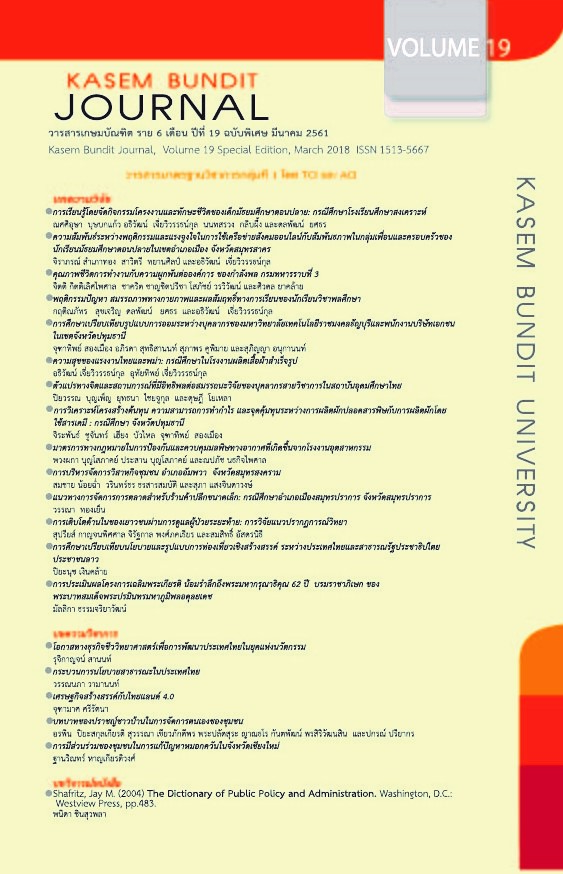การเติบโตด้านในของเยาวชนผ่านการดูแลผู้ป่วยระยะท้าย : การวิจัยแนวปรากฏการณ์วิทยา
Keywords:
Inner Growth, Hospice Care, Phenomenological researchAbstract
This article is a qualitative research in relations of phenomenological research by collecting data through in-depth interview, focus group and day-to-day report of field experience youth who volunteered in the project of visiting the patients in the last stage by themselves .The objectives is to study the inner growth of youth by practically taking care of hospice patients. The results of the research found that six motives supporting the inner growth of youth from practically taking care of the hospice patient are 1) self-awareness 2) contemplation 3) Intention 4) Acquiring knowledge and taking action 5) The continuing of practices until it becomes a part of one life 6) Sharing and learning, which can drive them for a great change to be evolving in their life and further commit themselves to be a self-less service person to mankind and society. By this the researchers had recommended points for next research that is adapting time to visit the hospice patient according to the timetable of their classes ,opportunities for nurse in the patient ward to be involve in the meeting to exchange knowledge and jointly study, and ask permission from patient and their relatives by explaining and giving details of information through verbal communication instead of using Participant Information Sheet to prevent any effect to the patient state of mind and feeling their relatives and their caretaker, in the case of patient just been inform through Participant Information Sheet that they are now a patient in their last stage of life.
References
2.Creswell, J.W. (2007). Qualitative inquiry and research design: Choosing among five approaches. (2nd ed.). Thousand Oaks, CA: SAGE.
3.Learning How to Live: Hospice Teen Volunteers Receive More Than They Give. (2004). Retrieved June, 14, 2014 from https://www.whatkidscando.org/archives/featurestories/hospice.html
4.Mezirow, J. (2009). Transformative Learning Theory. In J. Mezirow & E.W. Taylor (Eds.). Transformative Learning in Practice: Insights From Community, Workplace, and Higher Education. (pp.18-31). CA : Jossey-Bass.
5.Nilchaikovit, T. & Juntrasook, A. (2009). The Arts of Facilitation for Transformation: Handbook for Contemplative Facilitator. Nakhon Pathom: Contemplative Education Center, Mahidol University. (in Thai).
6.Harryman, W. (2010). Cassandra Vieten (IONS) : Why We Need to Study Transformations of Consciousness. Retrieved November, 5, 2016 from
https://www.elephantjournal.com/2010/04/cassandra-vieten-ions-why-we-need-to-study-transformations-of-consciousness/
Downloads
Published
How to Cite
Issue
Section
License
ทัศนคติ ความคิดเห็นใด ๆ ที่ปรากฏในวารสารเกษมบัณฑิตฉบับนี้เป็นของผู้เขียน โดยเฉพาะ มหาวิทยาลัยเกษมบัณฑิตและบรรณาธิการ ไม่จำเป็นต้องมีความเห็นพ้องด้วย







